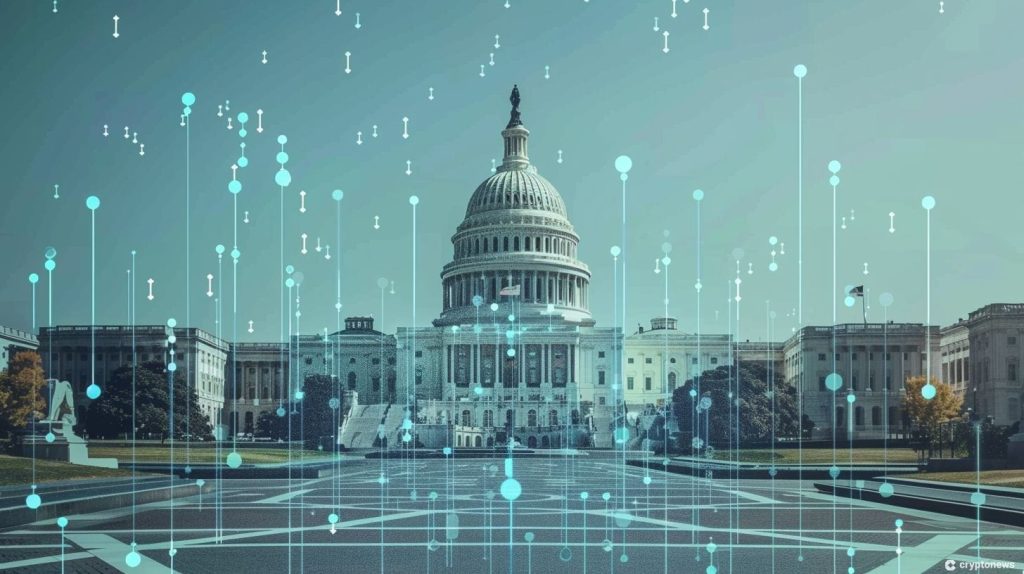A potential stablecoin bill is currently being considered in Congress, with Representatives Cynthia Lummis and Kirsten Gillibrand introducing a comprehensive bill that would allow for both state and federal regulatory oversight of cryptocurrencies. However, Cody Carbone, Chief Policy Officer at The Digital Chamber, is pessimistic about the bill passing before the U.S. presidential election, giving it only a 35% chance of success. House Financial Services Chairman Patrick McHenry also has a competing piece of legislation called the Clarity For Payment Stablecoins Act, which would keep non-bank stablecoin issuers under state regulation. The disagreement over regulatory oversight remains a major point of contention among lawmakers, making the passage of a stablecoin bill uncertain.
With time running out before representatives return to their partisan camps and focus on potential re-election, the push for effective stablecoin reform is reaching a critical point. Representatives are rushing to advance their crypto bills on Capitol Hill, and recent reports suggest that Maxine Waters and Patrick McHenry have pitched their stablecoin reform bill to Senator Chuck Schumer. Waters, a top Democrat on the House Financial Services Committee, expressed optimism that a stablecoin bill could be passed in the near future. However, Elizabeth Warren stands as another obstacle to reaching a consensus on stablecoin legislation, as she has been vocal in her opposition to regulating cryptocurrencies without the approval of her Digital Asset Anti-Money Laundering Act (DAAMLA).
The debate over stablecoin legislation is intensifying as key stakeholders work to find common ground on regulatory oversight for cryptocurrencies. The fate of stablecoin reform may hinge on whether lawmakers can come together to create a bill that can pass both houses of Congress and ultimately earn the president’s approval. The upcoming weeks will be crucial in determining whether U.S. legislators can compromise on stablecoin legislation, with the focus likely shifting to the November 2024 elections. Given the competing interests and disagreements among lawmakers, the path to enacting stablecoin legislation remains uncertain, and the chances of passing a bill before the presidential election are relatively low, according to industry experts.
Stablecoin regulations have become a contentious issue in Congress, with competing bills vying for approval and key players like Maxine Waters and Patrick McHenry pushing for progress. The introduction of comprehensive legislation by Representatives Cynthia Lummis and Kirsten Gillibrand has raised hopes for meaningful oversight of cryptocurrencies at both the state and federal levels. However, the lack of consensus on regulatory oversight and the influence of figures like Senator Elizabeth Warren pose significant challenges to passing stablecoin legislation before the upcoming presidential election. As lawmakers negotiate the future of cryptocurrencies in Washington, the outcome remains uncertain, and the potential for compromise on stablecoin regulations remains to be seen in the coming weeks.
Overall, the future of stablecoin legislation in the United States hangs in the balance as representatives navigate conflicting interests and seek to reach consensus on regulatory oversight for cryptocurrencies. The introduction of competing bills and the involvement of key figures like Maxine Waters, Patrick McHenry, and Elizabeth Warren highlight the complexity of the issue at hand. With the presidential election looming, stakeholders in the crypto industry will be closely monitoring developments in Congress to gauge the prospects of passing a stablecoin bill in the near future. The coming weeks will be critical in determining whether U.S. lawmakers can overcome their differences and collaborate on establishing a regulatory framework for stablecoins that can withstand political pressures and earn broad bipartisan support.


